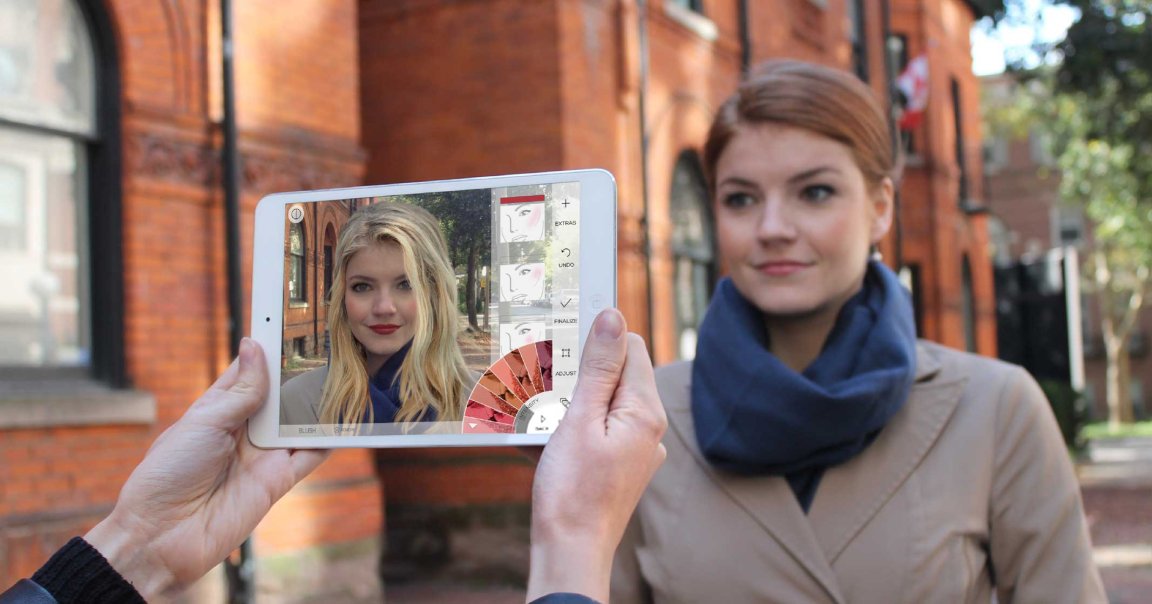
Makeup-users, get ready. AI is ready to tell us we look ugly.
The app ModiFace scrutinizes your skin type, points out what’s wrong with your face, (you’ve got wrinkles here, a spot there), and suggests cosmetics that might be able to repair or cover those flaws.
If you just thought, “Hey, making people feel insecure is a great way to get people to buy cosmetics,” you’re not alone. French cosmetic giant L’Oreal recently purchased the Canadian company for an undisclosed (but likely astronomical) sum.
In theory, the tool sounds kind of cool. The company has published more than 200 scientific studies and holds 30 patents in development of this technology, so there’s reason to believe it works better than some of the other makeup apps already out there (ModiFace would probably become the best-known of these once L’Oreal makes it ubiquitous). And because it’s an app, it doesn’t require investment in a whole new piece of hardware, the way Amazon smartmirror would.
Plus it sounds pretty convenient. Trying a new foundation without having to go to the store and covering my hand with poorly-colored product? Yes, please.
But there’s an obvious downside to ModiFace: it provides users with a limited definition of what it means to look beautiful.
That standard is getting narrower all the time thanks to social media. Despite some effort to expand beauty standards to people of different colors, shapes, and sizes, the popularity of sites like Instagram and Snapchat make the same old beauty standards seem attainable and immediate, the airbrushing and photoshopping seem less obvious.
“We are on the verge of a very, very serious problem,”Jane Cunningham, the author of Britishbeautyblogger.com, told The Guardian in 2015. “The world of vloggers and YouTubers has created a perverse, homogenized sense of distorted ‘beauty’ with no diversity or reality… Society is losing all perspective on the diversity of beauty and it’s contributing to an alarming growth in dysmorphia.” Recent scientific literature has confirmed this assessment.
Consumers, especially women, don’t need another faceless entity pointing out every little flaw. That’s especially true for women of color, for whom facial recognition software can be inaccurate. Might ModiFace direct non-white users towards more limited products for their skin tones, or push them to ascribe to a particular aesthetic they may not agree with? Well, it wouldn’t be the first time. And it’s not clear from ModiFace’s marketing materials whether the tool works for non-cis women — a growing market of makeup consumers (in 2016 L’Oreal itself used a male model to advertise cosmetics).
A tool like ModiFace might be useful for some makeup users, or convenient even. But for others, it will just be another entity telling them they’re not young enough, not white enough, not pretty enough.